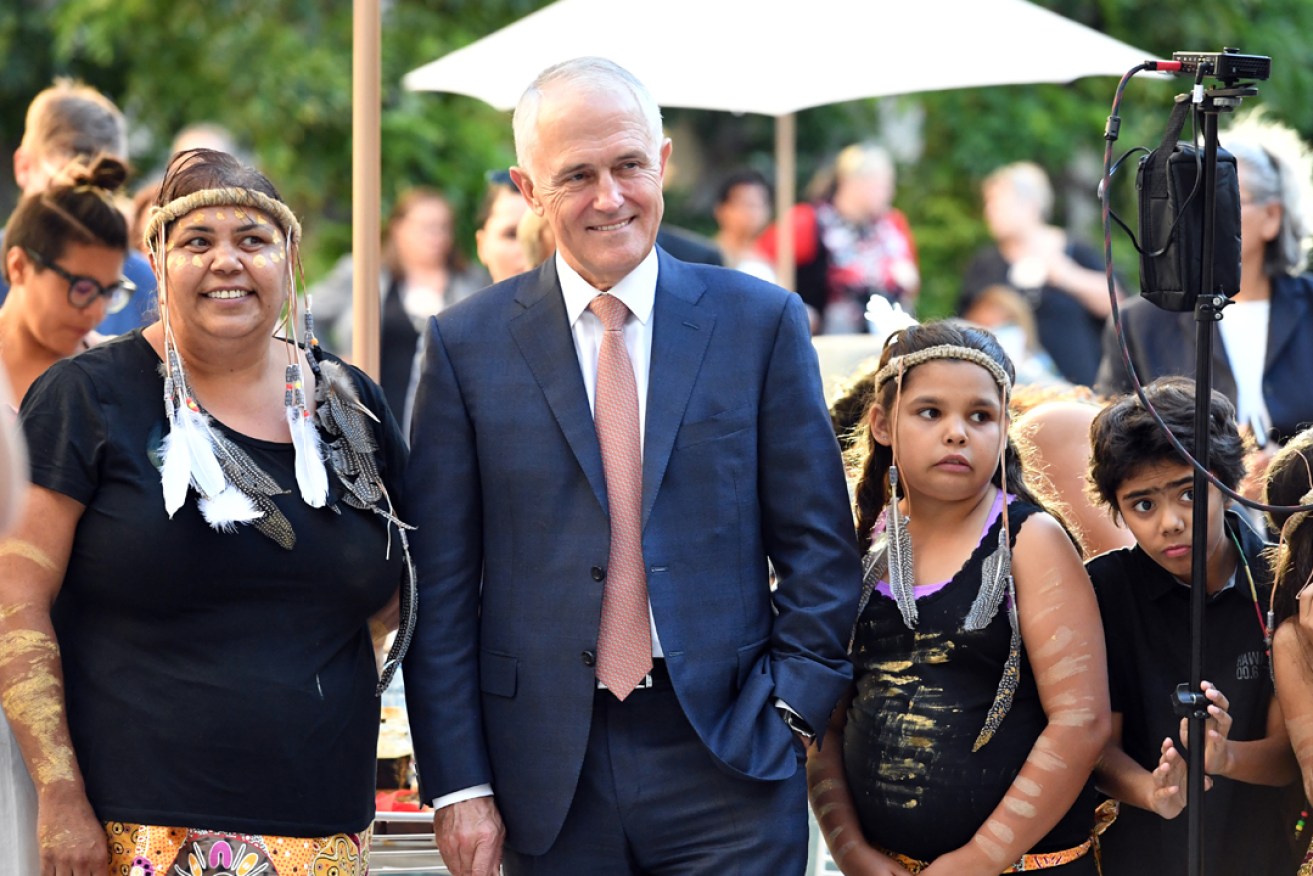Indigenous rights: ‘They can’t wash their hands of this’
It was the most successful referendum in the nation’s history, but the 1967 vote was only the beginning of an unfinished journey to equality for indigenous Australians.

Prime Minister Malcolm Turnbull at an indigenous event on the eve of the Close the Gap report earlier this year. Photo: AAP
On May 27 that year, more than 90 per cent of Australians voted to include Aboriginal people in the Census and allow the commonwealth to create laws for them.
With the 50th anniversary of the historic vote marked on Saturday, prominent Aboriginal figure Tom Calma says the pace of indigenous advancement since then has been unacceptably slow.
The former Aboriginal social justice commissioner criticised a lack of consistent policy and funding approaches at all levels of government, which has robbed indigenous Australians of their self-determination.
“We need a better vision for the future,” Professor Calma said.
This year’s Closing the Gap report showed only one of seven targets set down to improve Aboriginal health, education and employment outcomes is on track to be met.
Professor Calma said the targets, which expire in 2018, weren’t created in consultation with indigenous groups and should include mental health and incarceration.
While Canberra has claimed the targets are largely the responsibility of the states, Professor Calma argues the Federal Government has a leadership role.
“They can’t wash their hands of this. If all governments work together with Aboriginal people we will see a change, but whilst they unilaterally do their own thing, we won’t,” he said.
Indigenous business leader Sean Gordon says the 1967 referendum wasn’t the great turning point it’s trumpeted as, claiming the decades of oppression that followed can only be addressed through meaningful constitutional reform.
“As the birth certificate of our nation, the constitution is largely silent on the original people of this continent,” he said.
This week at a constitutional recognition convention in Uluru, more than 250 indigenous leaders will hammer out a referendum proposal to put to voters.
There’s a powerful appetite for strong structural reform, not simply lip service, Referendum Council co-chair Pat Anderson said.
“We will not accept minimalism or incrementalism. Nor are we just going to settle for some poetry in a statement of acknowledgement,” she said.
“We can’t just sit on the fringes of society any longer in terms of decision-making in the political life of the nation.”
A referendum road map will later be presented to Prime Minister Malcolm Turnbull and Opposition Leader Bill Shorten, who will be delivering commemorative speeches to parliament on Wednesday.
The National Museum of Australia in Canberra also will launch a landmark exhibition featuring historic items marking the anniversary.
National Reconciliation Week begins on Saturday, culminating in the 25th anniversary of the landmark Mabo decision which led to native title laws.
-AAP




